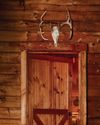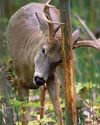
MOST HUNTERS MOVE too quickly when a bird flushes. A friend once emptied an unplugged Benelli at a ringneck pheasant that had jumped up at our feet. The rooster was still in range when his gun spit out the last smoking hull. So, I mounted my gun and shot the bird.
Take a deep breath and do the math: A flying pheasant—one of the faster upland birds—might hit 40 mph. That’s 58 feet (19.3 yards) per second, which means almost any gamebird that flushes at your feet will take at least two seconds to fly out of range. Even a bird that flushes 15 or 20 yards ahead gives you a full second to work with. That’s plenty of time if you learn to use it wisely. The trick is to move neither too quickly nor too slowly—to learn how to mount the gun and shoot with a rhythm and timing that gives you the best chance to connect. Here’s how.
READY FOR YOUR CLOSE-UP
It should probably go without saying that when you’re hunting birds, you should expect to see some. Yet upland hunters are often startled by a flush, which is an excellent first step toward a rushed shot and a miss.
You might walk all day for only a couple of chances, and you never know when they’ll come. You have to be ready, but you can’t remain in a state of white-knuckle alertness for hours. Remember the first time you drove a car? If you were like me, your forearms hurt afterward from squeezing the wheel. Now when you drive, you’re relaxed, but your eyes are looking far down the road, and one small part of you is ready to react. That’s what walking in the uplands should be like. Cultivate that state of casual alertness, and you’ll be ready when the time comes.
This story is from the Volume 125, Issue 2 - 2020 edition of Field & Stream.
Start your 7-day Magzter GOLD free trial to access thousands of curated premium stories, and 9,000+ magazines and newspapers.
Already a subscriber ? Sign In
This story is from the Volume 125, Issue 2 - 2020 edition of Field & Stream.
Start your 7-day Magzter GOLD free trial to access thousands of curated premium stories, and 9,000+ magazines and newspapers.
Already a subscriber? Sign In
LIVING THE DREAM
After the author arrives in Maine’s fabled North Woods with a moose tag in his pocket, an adventure he’s been wanting to take his entire hunting life, reality sets in, and he learns a valuable lesson: Be careful what you wish for
Get the Drift
How to make an accurate windage call under pressure

First Sit
An icebreaker outing in a pristine spot produces the rut hunt of a lifetime
A Local Haunt
The author finds a sense of place in an overlooked creek, close to home

A Hop and a Pump
Jump-shooting rabbits with classic upland guns is about as good a time as you can have in the outdoors

Welcome TO camp
Is there any place better than a good hunting camp? It has everything: great food, games and pranks, and of course, hunting. Shoot, we don’t even mind going to camp for grueling work days in the summer. Here, our contributors share their favorite stories, traditions, and lessons learned from camps they’ve shared. So come on in and join us. The door’s open.
THE DEERSLAYERS
Before you even claim a bunk, you need to eyeball the hardware your buddies have brought. In the process, you’ll see that the guns at deer camp are changing. What was walnut and blued steel may now be Kevlar and carbon fiber. The 10 rifles featured here aren’t your father’s deer guns. They’re today’s new camp classics
THE JOURNEY TO PIKE'S PEAK
Last summer, the author and three friends ventured off the grid to a remote fish camp in Canada. They hoped for great fishing, but what they experienced was truly something else

Stage Directions
When early-season whitetails vanish from open feeding areas, follow this woods-edge ambush plan
Rookie Season
A pup’s first year, from preseason training to fall’s big show